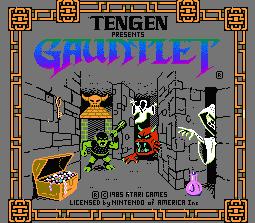I’ve long been a fan of postapocalyptic fiction, and there’s just something about humanity on its knees that gives me goosebumps. There was a phase when I consumed naught but postapocalyptic stories, movies and video games like a starving man in a Sizzlers, and you probably don’t want to know how many times I’ve watched Mad Max 2. I still consume the subgenre occasionally, but I think the point where I was voraciously reading the Deathlands books (war-porn postapocalyptic series, the publisher cranks em out every month or so) was when I realised I Had to Give It A Rest.
Still, good fun was had 🙂
As far as subgenres go, it’s been on the radar for a long time, notably since the Cold War, when folks were worried that the whole world was going to resemble Fallout 3 on a difficult setting. And according to the wise sages at Wikipedia, this sort of fiction has been around since the beginnings of literature, with the Babylonians and all their mates having a crack at it (and it posits that the Book of Revelations is a solid candidate for postapocalyptic fiction, which amuses me more than it should).
In my own reading adventures, one thing I’ve notably avoided is apocalyptic fiction. Disaster movies and novels, where the breaking of the world is actually taking place, this sort of thing barely keeps my interest. Okay, so the zombies have arisen, the meteors have struck, and the ocean just washed away your house: what happens next?
This is where things get interesting (for me, at least). It’s all about the What Happens Next. When the rules are wiped from the slate, when nothing is left of our society, our civilisation, except the tall tales told by the desperate around timid little campfires, the ruins hinting at what once was, what has been lost. For me, that’s where it’s at.
Which tells me that, despite all of my own tastes in media, and to some extent my own writing, I’m not actually that into the postapocalyptic. In the truest sense of the word, I’m a fan of the interregnum, and like my fiction spiced with a healthy dose of Dark Ages. Interregnum is quite literally “the time between kings”, and in some places it’s been treated as a great background device, the feel of a tragic loss, an ennui that can persist for centuries. I’m thinking of Asimov’s Foundation books, to some extent Star Wars from ep 4 onwards, and some great stuff like Mary Stewart’s King Arthur books, and most recently Stephen Baxter’s novel Coalescents. One of my favourite areas of historical fiction is the fall of Roman influence, the rapid and complete withdrawal of civilisation from the fragile British Isles, and Stewart and Baxter handled this brilliantly in their respective books.
In Fight Club, I was really rooting for Tyler Durden, and the prospect of Project Mayhem had me salivating:
“We wanted to blast the world free of history…. picture yourself planting radishes and seed potatoes on the fifteenth green of a forgotten golf course. You’ll hunt elk through the damp canyon forests around the ruins of Rockefeller Center, and dig clams next to the skeleton of the Space Needle leaning at a forty-five degree angle. We’ll paint the skyscrapers with huge totem faces and goblin tikis, and every evening what’s left of mankind will retreat to empty zoos and lock itself in cages as protection against the bears and big cats and wolves that pace and watch us from outside the cage bars at night.”
OH HELL YES. And this, boys and girls, is why I’ve drifted into writing stuff like zombie fiction – not because I give a rats about how an extinction event has happened, I really just want to know, what the hell is humanity going to do now that it’s on its knees?
What happens next?



